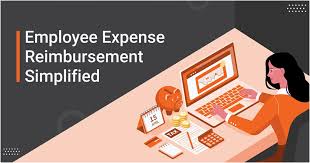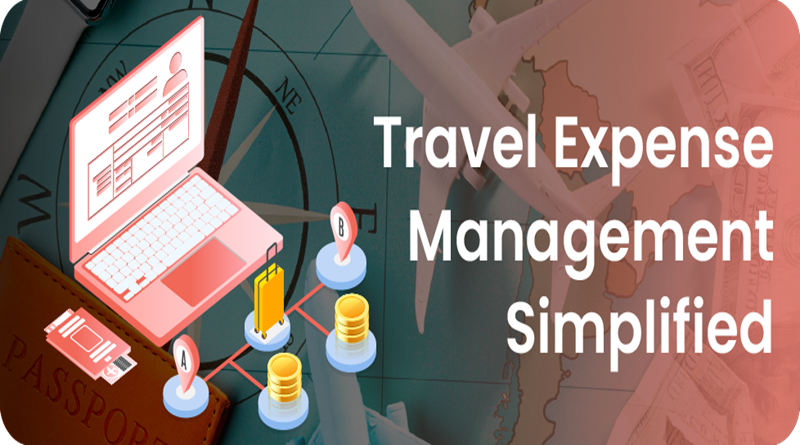Managing corporate expenses involves various interconnected aspects and reimbursements are one of the critical components that ensures employees are compensated fairly for their tour and management bear no loss. The practice not only fosters trust between the employee and employer but streamlines the operations and leads to more productivity.

In today’s dynamic business landscape, corporate travel and remote work trends have amplified the importance of efficient reimbursement systems.
The dynamic landscape of businesses and their scalability has increased the value of reimbursement policies and systems. According to GBTA, Global business travel spending is projected to reach $1.48 trillion by the end of 2024, surpassing the 2019 record of $1.43 trillion, and is expected to exceed $2 trillion by 2028, indicating strong growth ahead, a significant portion dedicated to employee reimbursement.
However, managing reimbursement is not a very easy task. There are several challenges associated with delayed approvals, fraudulent claims, and more. Here is a blog that talks about the reimbursement challenges, exploring the legal implications, practical applications, and practices that benefit both the employee and the employer.
What exactly is Employee Expense Reimbursement?
The process refers to the claiming the payments made by the business or organizations to the employee for the business related trip, that the employee may have incurred personally. Matching the claim with the employee receipts is vital to ensure a seamless process of reimbursement. It covers:
- Hotel expenses
- Taxi/Commute expenses
- Work-related meals
- Mobile or internet usage
- Training or certification costs (if any)
Challenges in Reimbursement Process
Manual expense management for employees is a tedious and slow process and moreover does not guarantee accuracy. Here is a list of critical challenges employees and employers face.
1. Approvals are Delayed
The management delays the process, and it can be so frustrating for the employee. Spending a hefty amount from their pockets and delayed reimbursement can often disrupt the financial planning of the employee.
The major cause of the delays may be due to inefficient workflows, incompetent policies, manual processes, and lack of clarity.
2. False Claims
Cross-referring and verifying the exact figures with the vendors can again be a daunting task for the management. Employees may have added some fraudulent activities or inflated prices, which can cause huge financial losses for the organization.
Therefore, without having a centralized platform where all the receipts and documents are maintained, insufficient audit mechanisms, causes a problem for the organization and they ultimately struggle to maintain transparency.
3. Outdated Policies
Setting up clear and concise reimbursement policies is a top-notch priority for organizations; however, it is quite challenging. The policies act as a guiding principle and sticking to the same allows businesses to set up an easy and hassle-free claim process.
However, when the policies become outdated, non-compliant with the current tax and legal regulations, are not aligned with the business, or are rigid, it creates a problem. Timely updating of the policies, automation, and clear communication can help bridge the gap.
4. Tax Implications
All the reimbursement processes must adhere to tax laws and financial regulations of the specific country. If they are non-compliant there may be disputes which is a challenge. Let us discuss this in more detail.
Legal Obligations for Expense Reimbursement
As the businesses scale, the chance of offshore travel increases too, and it has become quite evident now in the modern workplace. Here timely expense reimbursement is not only about seamless operations but also becomes a legal requirement in the jurisdiction. It becomes vital for the organizations to comply with the laws and regulations to ensure any sort of financial risks and protect employee rights. Here is a list of a few legal considerations:
1. Tax Implications
Basically, the reimbursement charges are non-taxable for the employees, provided they meet the general criteria for the same. However, if the employee does not possess the proper documents, and fails to comply with the requirements and tax laws, it becomes a liability for both the employee and employer.
Example
Considering a specific country like India, section 37 of Income Tax declares reimbursement for legitimate business expenses like submitting a receipt for business-related commute taxi fare, they can claim the reimbursement. If the employee is making personal expenses like watching movies and other entertainment aspects, it may attract a liability for employees.
2. Labor Laws
There are some jurisdictions where the labor laws make it necessary for the employers to reimburse for the necessary business expenses, carried out for the work. It is just to make sure that employees are valued, burdened free and can seamlessly carry out their professional responsibilities.
Non-compliance to these laws can result in legal disputes, penalties, or damage to the employer’s reputation.
Example
Under California Labor Code section 2802, employers are required to “indemnify” California employees for “all necessary expenditures or losses” employees incur “in direct consequence” of performing their duties. If an employee is using a car for commuting, the employer reimburses the fuel expenses.
3. Contractual Obligations
A contractual obligation refers to the legal policy that both parties in the contract must adhere to. Once a contract is created and deliverables are added, it becomes a key part of a legally binding agreement to maintain a peaceful and successful relationship between the parties.
The contract may contain the payment terms, termination terms, NDAs, timelines for submitting claims, and more.
Example
In the UK, an employment contract states that an employee can claim reimbursement within 30 days of the incurring expenses. However, if the employer fails to reimburse beyond the stipulated time, the employee can file a legal complaint citing a breach of contract.
4. Compliance with Local Tax Regulations
Every region has different local tax regulations; therefore, employers must stay updated on the same to ensure the taxes are handled and there is no breach of contract.
Example
In Singapore, expenses incurred for business purposes, like client entertainment, are deductible for corporate tax purposes if adequately provided with receipts. However, any reimbursement without proper documentation may be disallowed. However, in India, it is not.
Types of Reimbursable Expenses
| Component | Details | Example |
| Types of Reimbursable Expenses | Define list of allowable expenses like travel related cost, taxi fare, meals during the trip, mobile and Internet expenses | A healthcare company reimburses flights (economy class), lodging (mid-range hotels), business meals, and internet expenses used for work. |
| Submission Timeline | Timeframe for submitting claims (e.g., within 15 or 30, of expense). | A consulting firm requires employees to submit expense claims within 30 days. Late submissions require exceptional approval with valid reasons. |
| Documentation Requirements | Give clear instructions on all the documents needs to be submitted like original receipts of invoices, signed declaration, photos for digital submission and more. | An e-commerce company mandates mentioned receipts for meals and detailed invoices for lodging. Claims without proper documentation are automatically rejected. |
Time to Leverage Technology for Expense Management
Manual processing of expense claims can be time-consuming and prone to multiple errors. Automating the process using travel and expense management software simplifies tracking and approval. One of the advanced software that dominates the travel and expense management software market is SpendMantra, which streamlines the process of reimbursement, enhances accuracy and ultimately improves employee satisfaction.





